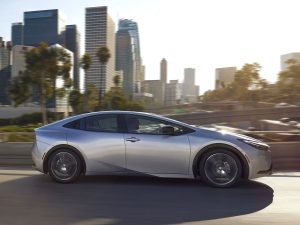Hybrid vehicles have already carved out a space in today’s automotive technology, and that space seems to be expanding every year. As people look for more value in their purchases and become more environmentally conscious, hybrid vehicles are emerging as the perfect answer. These vehicles combine the maximum capabilities of advanced electric motors with traditional combustion engines to provide a driving experience that is not only economical but also less harmful to the environment. This article explores the key benefits that make hybrid vehicles an attractive choice.
1. Impact on the Environment
The main reason for the popularity of hybrid cars is that they have a smaller impact on the environment than traditional petrol cars. Hybrid vehicles use an electric motor in combination with a gasoline engine to increase efficiency and therefore reduce fuel consumption and emissions. Reduced reliance on fossil fuels leads to a decrease in carbon dioxide emissions, which is one of the main causes of global warming. Additionally, hybrid vehicles are a cleaner option for densely populated places as they typically release fewer air pollutants, which contribute to urban smog and health problems.
2. Fuel Consumption
Improved fuel efficiency is one of the immediately noticeable benefits of driving a hybrid car. Because hybrids are designed to maximize fuel efficiency, they can travel longer distances on a given amount of fuel. Regenerative braking is a technology used for this purpose, where the energy lost during braking is recovered and used to charge the battery. As a result, the car uses less fuel and requires less fuel to be refilled, saving money. Over time, the initial cost of a hybrid can be significantly recouped through these savings compared to a regular car.
3. Economic or Cost
While hybrids may cost more upfront, they prove to be more economical over time. While there are other financial incentives, the most obvious benefit is the reduced gas mileage. Hybrid vehicle owners can further reduce their initial expenses by taking advantage of tax exemptions, rebates, and other benefits offered by many governments around the world. In addition, hybrid engines have fewer moving parts than conventional engines, making them cheaper to maintain during use.
4. Improve Efficiency
Contrary to popular belief, hybrid cars do not sacrifice efficiency. Modern hybrid powertrains provide a responsive and exciting driving experience. The electric motors of hybrid cars can produce high torque, allowing faster acceleration than many conventional cars. In addition, thanks to the perfect integration of the petrol and electric motors, there is less noise and vibration during the journey than with conventional combustion engines.
5. Higher Resale Value
There is a growing desire for environmentally friendly vehicles, and the resale value of hybrid vehicles is one of the reasons for that. Used car buyers are increasingly interested in hybrids for the same reasons that draw consumers to new models. Hybrid vehicles are a smart investment for individuals who may not want to maintain their car until the end of its life, as their continued demand can translate into a higher resale value.
6. Originality and Diversity
The hybrid vehicle market is expanding dramatically, with more models to choose from than ever before. To meet a wide range of customer needs, automakers are applying hybrid technology to various market segments, from subcompact vehicles to SUVs. With such a variety, there is a hybrid to suit every need and taste, whether performance-oriented, suitable for family outings or city driving.
Conclusion
Choosing a hybrid vehicle is not only a smart financial choice, but also shows your commitment to cutting-edge automotive technology and environmental consciousness. Hybrid vehicles offer many benefits, including lower fuel costs and emissions, better performance, and higher resale value. They are a forward-looking choice that takes into account both practical and environmental factors. As technology advances and the world moves closer to sustainability, the use of hybrid vehicles will only become more abundant, making them the perfect choice for today’s savvy motorist.
FAQs
1. Describe hybrid cars.
A hybrid car is a car that uses different energy sources to power its engine. It usually consists of a combustion engine and one or more battery-powered electric motors. With this configuration, the vehicle uses less fuel and produces fewer emissions than a vehicle with a standard gasoline or diesel engine.
2. How do hybrid cars work?
To maximize performance and fuel economy, hybrid vehicles alternate or combine an electric motor with a gasoline engine. In stop-and-go traffic or at moderate speeds, hybrid vehicles typically rely solely on their electric powertrain, which emits no pollutants. The petrol engine is switched on when extra power is needed, for example when driving on the highway.
3. Are hybrid cars more expensive than conventional cars?
First, hybrid cars are generally more expensive than their gasoline-only counterparts. However, increased fuel efficiency and potential tax breaks and rebates provided by various governments to promote environmentally friendly driving can offset the costs.
4. How much does it cost to maintain a hybrid car?
Because hybrid engines run less intensively than conventional cars, they cost less to maintain. Additionally, regenerative braking uses the electric motor to slow the vehicle and reduce brake wear, extending the life of the hybrid braking system. However, replacing the battery when necessary can be expensive.
5. What is the lifespan of a hybrid car battery?
Hybrid battery life varies depending on use and model, although it generally lasts the life of the car. Most manufacturers offer batteries with an eight to ten-year warranty. Technological breakthroughs extend the lifespan of hybrid batteries.



